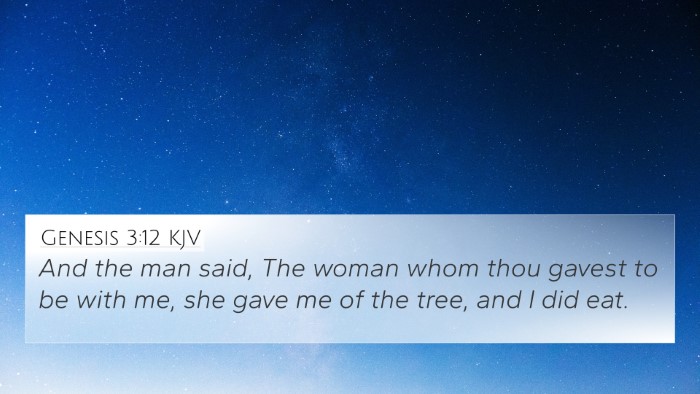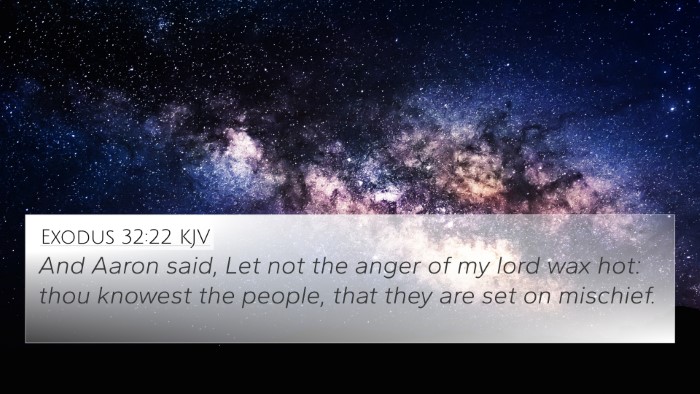Understanding 1 Samuel 15:15
Verse: "And Saul said, They have brought them from the Amalekites: for the people spared the best of the sheep and of the oxen, to sacrifice unto the LORD thy God; and the rest we have utterly destroyed."
Verse Meaning Summary
This verse reflects the complex interaction between obedience to God's command and the rationale humans construct to justify their actions. Saul’s admission reveals a failure to fully obey God's directive while attempting to offer a pious rationale. The underlying theme focuses on the conflict between divine command and human reasoning.
Commentary Insights
- Matthew Henry: Henry underscores Saul's attempts to rationalize his disobedience, demonstrating how people's pride often leads them to justify their actions. He points out that this passage highlights a common human tendency to modify God's commands to suit personal judgment.
- Albert Barnes: Barnes emphasizes the distinction between the will of God and the desires of man. He articulates that Saul's acknowledgment of sparing the best livestock is filled with irony; he thought he was honoring God but was, in fact, disobeying Him.
- Adam Clarke: Clarke points out the responsibility that rests on Saul and the ramifications of collective actions, stressing the error of following the majority against God's express command. He also notes the spiritual implications of valuing sacrifice over obedience.
Thematic Cross-References
1 Samuel 15:15 is closely related to several verses and themes throughout the Bible that stress obedience to God's commands over sacrifices or offerings. Here are some significant cross-references:
- 1 Samuel 15:22: "And Samuel said, Hath the LORD as great delight in burnt offerings and sacrifices, as in obeying the voice of the LORD? Behold, to obey is better than sacrifice, and to hearken than the fat of rams." This highlights the central theme of obedience.
- Proverbs 21:3: "To do justice and judgment is more acceptable to the LORD than sacrifice." This verse reinforces the idea that moral conduct is prioritized over ritualistic practices.
- Hosea 6:6: "For I desired mercy, and not sacrifice; and the knowledge of God more than burnt offerings." Again, this emphasizes God's desire for an authentic relationship over mere ritual.
- Matthew 7:21: "Not everyone that saith unto me, Lord, Lord, shall enter into the kingdom of heaven; but he that doeth the will of my Father which is in heaven." This New Testament parallel emphasizes the requirement of obedience.
- Romans 12:1: "I beseech you therefore, brethren, by the mercies of God, that ye present your bodies a living sacrifice, holy, acceptable unto God, which is your reasonable service." This verse illustrates the importance of living out one's faith practically rather than through empty rituals.
- Isaiah 1:11: "To what purpose is the multitude of your sacrifices unto me? saith the LORD: I am full of the burnt offerings of rams..." which speaks to the utilitarian aspect of sacrifices when disconnected from true obedience.
- Matthew 23:23: "Woe unto you, scribes and Pharisees, hypocrites! for ye pay tithe of mint and anise and cummin, and have omitted the weightier matters of the law, judgment, mercy, and faith..." This verse illustrates the critique of focusing on law rather than the spirit of it.
Inter-Biblical Dialogue
The interaction between the Old and New Testaments is evident through the repeated emphasis on genuine obedience over ritualistic practices. The teachings of Jesus frequently echo the sentiments expressed by the prophets regarding the nature of true worship and service.
Conclusion
In conclusion, 1 Samuel 15:15 serves as a poignant reminder of the need for authentic obedience in our relationship with God. As seen in both the Old and New Testaments, this principle resonates throughout scripture, prompting believers to examine their priorities and motivations in service to the Lord.










